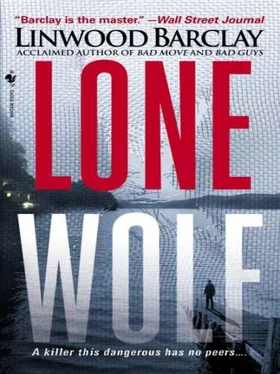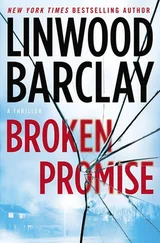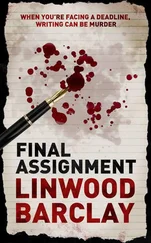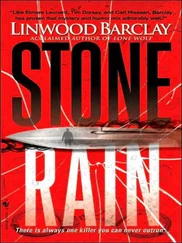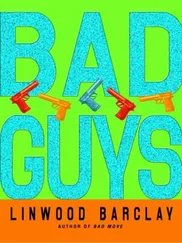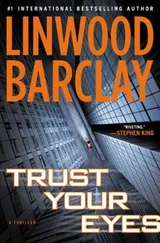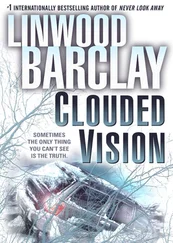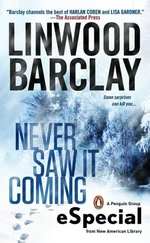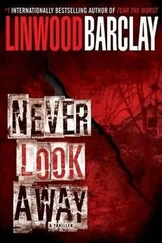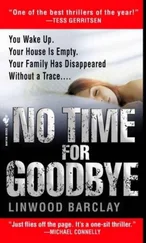Orville reached his car, got inside, turned it around, and stopped as he passed me. “Tell your dad we’ll be out in the morning to look for the bear.”
“Sure,” I said. “I’ll tell-”
And then he hit the gas, kicking up gravel on his way out.
I went back into Dad’s cabin. “How’d it go?” he asked.
I ignored him and went into his study and downloaded the shots I’d just taken from the digital camera to Dad’s computer. “Hey,” he called out. “Are you gonna tell me what happened up there or not? Where’s Orville?”
I found two good pictures of Orville, one straight on, the other a three-quarters shot, and e-mailed them to Sarah’s work address with a note. This is the police chief, Orville Thorne. Does he look familiar to you ?
I closed the mail program and went back into the main room.
“Would you tell me what in the hell is going on?” Dad said, anger creeping into his voice. “Every time I ask you about things, like what happened out front of Lana’s, what happened up there just now, you don’t tell me a damn thing.”
I decided it was time to start doing a bit of work on my own. I dug out the phone book he kept in a drawer in the kitchen area. “What’s that mayor’s name again?” I asked.
“Huh? What do you want her name for?”
“The name?”
“Holland. Alice Holland. She’s mayor for Braynor and the surrounding county. Are you calling her? What are you doing?”
I ran my finger down through the listings of the slender phone book. There was only one Holland, but no A. Holland. “There’s only a G. Holland here,” I said. “On Connor Bay Road.”
“That’s her husband. George Holland.”
“So she’s not a lesbian,” I said.
“Far as I know,” Dad said.
I asked Dad where Connor Bay Road was. “North side of town, half a mile or so, road runs off to the east, you hang a right, it’s kind of windy,” he said. “Are you just going to go out there? You’re just gonna show up? Don’t you think that’s a bit rude? Shouldn’t you call first?”
I grabbed my car keys off the counter and was out the door, Dad calling out, “What’s going on?” I got in my Virtue and headed into town. The only traffic light on Main Street was green, allowing me to sail through Braynor in under a minute. As the houses on the north side began to thin, I looked for Connor Bay Road.
I hung a right. The town was only a quarter mile behind me, but I was back in the woods, tall pines crowding up to the shoulders of the road. I watched the mailboxes, each of them named, and when I saw “Holland” I put on my blinker and turned in.
The trees opened up about fifty yards in, revealing a chalet-like home with pine board siding, a peaked roof, and enough glass that I could see right through the first floor to the bay on the other side. There were a couple of SUVs parked off to the side, and I pulled in behind them.
A large, bearded black man, six feet easy, a couple hundred pounds, emerged from a separate double-wide garage, wiping his hand on a rag. It looked like he’d been doing some mechanical kind of work, but he didn’t have a mechanic’s look about him. He was wearing pleated khakis and an Eddie Bauer-like shirt. He eyed me warily, stepped back into the garage for a moment, and reappeared with a baseball bat in his hand.
Not a good sign.
“Can I help you?” he asked, lightly tapping the bat with his right arm into his left palm.
“My name is Zack Walker,” I said. “I’m a reporter for The Metropolitan . I was looking for Mayor Holland. Are you Mr. Holland?”
“I am. So what do you want the mayor for?” The bat was hanging down at his side now, swinging ever so gently.
“I just wanted to ask her a few questions, that’s all.” He kept swinging the bat. “I’m not here to cause trouble.”
“We don’t get The Metropolitan up here much. There’s one place in town I think you can buy it. Why’s someone from a big paper like that interested in talking to a small-town mayor like my wife?”
“Look, is she around?”
“I’ll let her know you’re here.” He stopped swinging the bat, disappeared into the house, and a moment later, Alice Holland appeared at the door.
“Why don’t you come in?” she said, waving me toward her.
“Thanks for seeing me,” I said, stepping in. “I took a chance that you might be home. Your husband doesn’t seem very eager for you to have visitors.”
At a glance, I could see this was no cottage. Modern, Swedish-style furniture, abstract art on what few walls weren’t made of glass, art books and copies of The New Yorker and Harper’s on the coffee table.
“You’ve come a long way to see me,” Alice Holland said. She was a small woman, mid-fifties, I figured, barely five feet. She’d have looked even tinier had she been standing right next to her husband, but he held back, by the door.
“You want me to hang around, hon?” he asked.
“No, George, it’s okay.” He slipped out, and she smiled at me. “He just wants to be sure I’m okay. He’ll be happy to go back to work on his snowmobile anyway,” she said. “Another two or three months and we could have two feet of snow on the ground.” She had a pretty face, even without any makeup. But when she brushed some of her silver hair away from her eyes, I could see how weary they looked.
“I was already in the neighborhood,” I said. “And I’m not sure whether I’m speaking to you as a reporter or as a concerned citizen.”
“Why don’t you sit down,” she said, gesturing toward one of the two leather couches.
“My father owns Denny’s Cabins, south of town. Arlen Walker.”
Alice Holland brightened. “Oh yes, I’m sure I’ve met Arlen once or twice. And I’ve probably been into his place at some point, maybe when I was campaigning. I’ve certainly seen the sign on the highway.” She put her hands on her knees, leaned forward, as if we were sharing a secret. “Isn’t that where the man was killed by the bear? Tracy had a story in the Times .”
I hesitated. “Yes, that’s right.”
She nodded thoughtfully. “Actually, I think Tracy writes every story in The Braynor Times . I wouldn’t be surprised they make her deliver it, too. Your father, I trust he’s okay? He wasn’t attacked as well?”
“No, well, he sprained his ankle, which is why I’ve been hanging around for a few days, to help him with the camp.” I cleared my throat. “For a small town like Braynor, there seems to be a lot going on.”
“Yes,” she said. “A man killed by a bear, and then that horrible thing down at the co-op. Did you know Tiff Riley?”
“No.”
“He was a charming man. Not the sharpest knife in the drawer, but nice. And that’s off the record, by the way. I wouldn’t want to be quoted saying something unflattering about the man, especially one who’s just passed on.”
“I’m not taking notes,” I said. “Braynor also seems to be caught up in a bit of controversy at the moment.”
Now the weariness fell over Alice Holland like a blanket. “Oh yes. Will we or will we not let the gays into our parade?” She moved her hand across the air, like she was pasting up a headline. “The world waits with bated breath.”
“Well, will you?”
“Of course we will. Unless this town wants to be buried in lawsuits.”
“So the gay and lesbian organization, they have your support?”
“Ha!” said Alice Holland. “They’re nothing but a bunch of shit disturbers, pardon my French. Honestly, can you imagine any gay and lesbian group even wanting to be part of a fall fair parade that features lawn tractor racing? It’s all I can do to sit in the back of the convertible from Braynor Ford. Those gay activists’ll have the Braynor High School band in front of them performing ‘Feelings’ with trombones and tubas and coming from behind will be Eagleton’s Bait and Tackle, which, last I heard, was going to have choreographed, dancing night crawlers. People in worm suits. I mean, isn’t the gay community a tad too sophisticated for something like that? The only reason they want to be in the parade is because there are so many people who don’t want them in the parade. If Charles Henry, who, by the way, can kiss my skinny white ass, got rid of his petition and put a sign out front of his grocery store saying “Welcome Homos!” they’d pack up and go back to the city and forget this whole damn thing.”
Читать дальше
